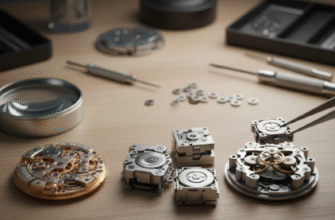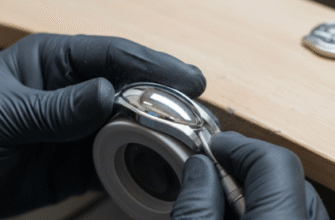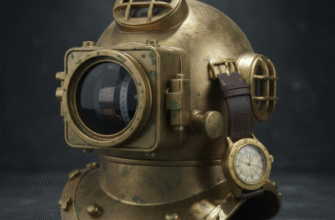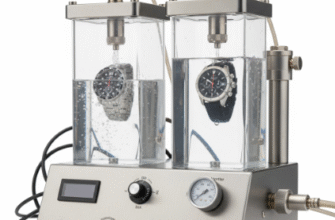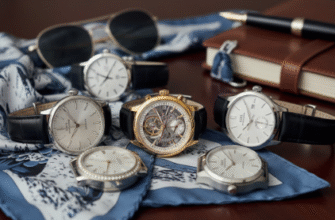There is an intimate, almost living quality to the sound of a mechanical watch. It is not the silent, sterile progression of a digital display, nor the detached hum of an electric clock. It is a rhythmic, percussive beat, a miniature heartbeat strapped to the wrist. This sound, born from a complex dance of springs, gears, and levers, is far more than a simple measurement. It is a profound philosophical statement on the nature of time itself, a tangible expression of humanity’s long and troubled relationship with this most elusive of concepts.
The gentle, insistent ticking is, at its core, a sound of order imposed upon chaos. Before the advent of mechanical timekeeping, human life was governed by natural, cyclical rhythms: the rising and setting of the sun, the turning of the seasons, the waxing and waning of the moon. This was a fluid, organic time, deeply connected to the environment. The mechanical watch, however, represents a radical departure. It is the sound of human reason creating a new kind of time—one that is linear, uniform, and infinitely divisible. Each tick is a declaration that time can be captured, quantified, and controlled.
The Clockwork Universe on Your Wrist
The philosophy underpinning the mechanical watch reached its zenith during the Enlightenment, an era that championed reason and the scientific method. Thinkers began to conceive of the universe itself as a grand, intricate clockwork mechanism, set in motion by a divine watchmaker. In this worldview, everything operated according to precise, knowable laws. The mechanical watch is a microcosm of this universe. Its rhythmic beat is the sound of predictability, a comforting assurance that the world operates on a stable, measurable foundation.
This imposition of order offers a sense of security. By breaking the boundless river of time into manageable units—seconds, minutes, hours—we gain a framework for organizing our lives, coordinating our actions, and building civilizations. The train schedule, the factory whistle, the appointment book; all are children of the watch’s steady beat. Yet, this very act of measurement carries a hidden philosophical cost. In rendering time predictable, we risk stripping it of its mystery and spontaneity. We begin to live by the clock, rather than in the moment.
The Rhythm of Control vs. the Flow of Being
The watch doesn’t just measure time; it shapes our perception of it. Its relentless, forward-marching rhythm encourages a view of time as a resource to be spent, saved, or wasted. It becomes a commodity, a linear path from a fixed past to a planned future. This stands in stark contrast to more ancient conceptions of time as cyclical or as an eternal present. The ticking escapement wheel, which allows the watch’s power to be released in controlled, even bursts, is a perfect metaphor for how we dole out our own lives in measured, “productive” intervals. We are coaxed into believing that a well-spent life is a well-scheduled one, a life where no second is unaccounted for.
The Ancient Greeks conceptualized time in two distinct ways, a duality the mechanical watch brings into sharp focus. Chronos refers to sequential, quantitative time—the kind that can be measured and counted, the very essence of a watch’s function. In contrast, Kairos signifies a qualitative moment of opportunity or significance, an opportune time for action that cannot be captured by gears or marked on a dial. The watch’s beat is the sound of Chronos, and its constancy often makes us more acutely aware of the fleeting, unmeasurable nature of Kairos.
A Constant Reminder of Mortality
Beyond the philosophical abstractions of order and measurement, the beat of a mechanical watch carries a deeply personal, existential weight. It is a memento mori—a reminder of death. With every tick, a moment of our finite existence passes, never to be reclaimed. The sound is not morbid, but rather a profound call to awareness. It is a constant, subtle whisper urging us to be present, to give meaning to the moments that are so audibly slipping away. Unlike a silent quartz watch, the mechanical movement makes the passage of time an felt, heard experience.
Holding a vintage pocket watch to your ear is like listening to the pulse of a bygone era. You hear the same beat that its original owner heard decades or even a century ago. This connects you to the unbroken chain of human experience, to the shared reality of our finite time. The watch becomes a vessel for memory, its rhythm a testament to the lives it has measured. It reminds us that our own time is just one short melody in the grand symphony of existence. This perspective can be incredibly grounding, transforming the anxiety of time’s passage into an appreciation for the present moment.
The Illusion of Discrete Moments
Perhaps the most subtle philosophical trick played by the mechanical watch is its creation of the “now.” The mechanism of the escapement, which gives the watch its characteristic tick, functions by stopping and starting the gear train many times a second. This mechanical action projects onto our consciousness the idea that time itself is composed of a series of discrete, separate moments. We come to believe in the reality of the “second” as a fundamental unit of existence.
However, many philosophers, such as Henri Bergson, have argued that our lived experience of time—what he called durée or duration—is not a chain of separate instances but a continuous, indivisible flow. Our consciousness does not experience a series of snapshots; it experiences a seamless unfolding in which the past melts into the present and leans into the future. The ticking of the watch, therefore, creates a useful but ultimately artificial construct. It chops up the seamless flow of reality into quantifiable bits, making it easier to analyze but losing the essence of its continuous nature. The silence between the ticks is as important as the ticks themselves, for it is in that perceived gap that the true, flowing nature of time resides, beyond the grasp of our mechanical creations.
Ultimately, the rhythmic beat of a mechanical watch is a complex and beautiful paradox. It is a symbol of human ingenuity and our desire to impose order on the universe, yet it constantly reminds us of what we cannot control. It is a tool for scheduling the future, yet it grounds us in the present moment with its audible reminder of mortality. It breaks time into countable pieces, yet in doing so, it illuminates the seamless, flowing reality it can never truly capture. It is more than a machine for telling time; it is a mechanical philosopher on the wrist, its steady beat a continuous meditation on our place in the grand, mysterious flow of existence.

